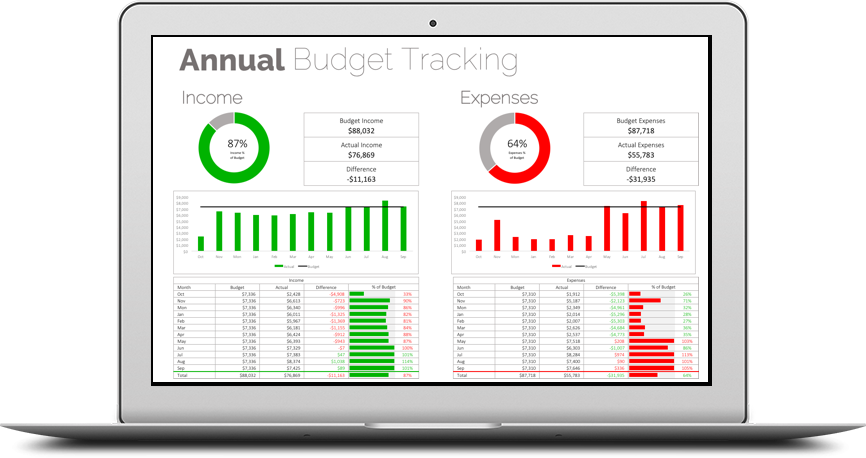How Much Life Insurance Do You Need?
How much life insurance do you need? Just enough, that’s how much.
Buying too much life insurance is a common problem. It’s an understandable problem, but a problem none the less. Buying life insurance is a tough decision. It’s emotional and it’s easy to get away from the cold hard facts.
If it wasn’t hard enough, insurance companies also make it very enticing to buy more life insurance than you need. The price for the next $250,000 of life insurance is usually quite a bit less than the first $250,000. This makes it very appealing to over-insure yourself. You think “why not buy an extra quarter million, it’s only an extra $15 per month?”
But buying life insurance rarely aligns with someone’s personal values. No one wants to buy life insurance. Life insurance isn’t fun, it doesn’t bring you joy, and the only time it becomes useful is when you’re no longer around. What you value about life insurance is the security it provides. So why buy more than you absolutely need?
When buying life insurance, you want to buy just enough to provide that security and not a penny more. So how much life insurance do you need?

How Much Life Insurance Do You Need?
Knowing exactly how much life insurance you need is a tricky thing. It’s a very emotional decision plus everyone’s situation is different. There is no hard rule to follow when deciding how much life insurance you need to purchase. No two families will need exactly the same coverage for exactly the same reason.
But there are a few things you definitely need to consider before deciding how much life insurance you need.
Disclaimer: When purchasing life insurance, it’s best to speak with a professional to get a custom analysis of your particular situation.
Watch out, things can get emotional! Buying life insurance means imagining a world without a loved one. But the best way to buy life insurance is with facts, not emotion.
Some of the facts you need to consider are changes in your income, changes in your expenses and changes you’re willing to make to your lifestyle.
Changes In Income
When deciding how much life insurance you need, you first must consider how your family’s annual income will change if you or your partner were not around.
Will it decrease? By how much will it decrease? For how long?
Is one partner at home with the children? Would they go back to work? Or would they stay home for a few additional years until the kids are in school?
Is your income situation flexible? How flexible? Can you earn more money if necessary?
In my situation, my wife stays at home with our two children. If the unfortunate were to happen, and I were to pass away, my wife would likely go back to work early to close the gap in income. This flexibility decreases the amount of life insurance we need.
Understanding the potential loss of income is the first step in deciding how much life insurance you need.
New blog posts weekly!
Tax planning, benefit optimization, budgeting, family planning, retirement planning and more...

Changes In Expenses
The next thing you need to consider are changes in your expenses.
Expenses will always change. Some expenses will go down while other expenses will go up. Maybe it’s a wash, maybe it’s not. A good life insurance analysis will include changes in expenses.
Decreasing expenses could be personal expenses or shared expenses.
Perhaps you can downsize your home? This could reduce your maintenance, utility and property tax bills. It’s difficult to think about but imagine all the expenses that would decrease if you or your partner were not around.
Maybe there is no longer a need for expensive hobby equipment? (My wife wouldn’t be out buying multiple bicycles like I do). Or an expensive club membership? Maybe you can sell an extra vehicle? Grocery and clothing budgets would likely be less.
On the flip side, you also need to consider increasing expenses. Maybe you’ll need help with the kids. Day care. After school care. Children’s camps.
There might be household chores you need help with. Maybe you’ll need to hire a cleaner twice a month. Perhaps you’ll eat out more and cook less?
Go through your household budget and consider all the changes in your personal spending. Then think about all the things that get done for free today that you might need to hire out. Add these pluses and minuses together to get a full view of how your expenses might change.
“How much life insurance do you need? Just enough, that’s how much.”
Changes in Lifestyle
The last thing to consider is whether you’re willing to make changes to your present lifestyle.
Are you willing to downsize or do you want to stay in your current home? Would you move if it meant getting a higher paying job? Are you willing to take on more household chores or pay for someone to help?
Maybe you’ll go seven years before upgrading your car instead of the five years you were planning. Maybe you’ll scale back on trips & vacations?
If you were planning to retire early, another opportunity might be to work longer and decrease your annual retirement savings. These are all scenarios that your financial planner can help model out.
Even a few lifestyle changes can make a big difference in how much life insurance you actually need.
Income, Expenses and Lifestyle
These are the three factors you need to consider when deciding how much life insurance you need. Consider changes to your income, changes to your expenses, and changes you’re willing to make to your lifestyle if the worst were to happen.
Only after considering these three factors will you have a good idea about how much life insurance you need.
Join over 250,000 people reading PlanEasy.ca each year. New blog posts weekly!
Tax planning, benefit optimization, budgeting, family planning, retirement planning and more...
Join over 250,000 people reading PlanEasy.ca each year. New blog posts weekly!
Tax planning, benefit optimization, budgeting, family planning, retirement planning and more...





0 Comments